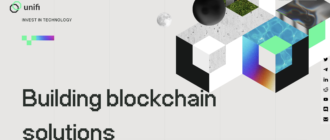BNB, originally known as Binance Coin, is a cryptocurrency developed by Binance, one of the world’s leading cryptocurrency exchanges. Initially created to facilitate operations within the Binance ecosystem, BNB has evolved into a widely utilized utility token with multiple applications across the blockchain and financial sectors. This article delves into the intricate technologies, smart contract capabilities, consensus mechanisms, and the unique innovations that define the BNB project.

Project History
The BNB token was launched through an initial coin offering (ICO) in 2017, just days before the Binance cryptocurrency exchange went online. The project was spearheaded by Changpeng Zhao (CZ), who has become a prominent figure in the crypto world. BNB was initially issued as an ERC-20 token on the Ethereum blockchain but later migrated to Binance’s own blockchain, the Binance Chain, in April 2019. This transition marked a significant step towards Binance’s broader ambitions in blockchain technology and decentralized applications (DApps).
What is BNB?
BNB serves primarily as the native cryptocurrency of the Binance ecosystem, which includes the Binance Exchange, Binance Chain, and BNB Smart Chain (BSC). It is designed to provide a streamlined, low-cost, and efficient transaction medium within Binance’s platforms, supporting functions such as trading fee discounts, token sales participation, and payment for transaction fees. Over time, its utility has expanded into numerous other applications both within and outside the Binance ecosystem.
What is BNB Smart Chain?
BNB Smart Chain (BSC) is a highly versatile and high-performance blockchain developed by Binance, one of the largest cryptocurrency exchanges in the world. Designed to run parallel to Binance Chain, BSC features smart contract functionality and compatibility with the Ethereum Virtual Machine (EVM). This design allows BSC to maintain the performance characteristics of the original Binance Chain while extending its capabilities to support decentralized applications (dApps), encompassing everything from decentralized finance (DeFi) to gaming and beyond.
The Connection between BNB Smart Chain and Binance.com
The BNB Smart Chain (BSC), formerly known as Binance Smart Chain, is deeply integrated with Binance.com, illustrating a strategic synergy that enhances both the blockchain network and the exchange’s functionality. This integration is pivotal in understanding how Binance leverages its ecosystem to provide a cohesive user experience and expand its market influence.
Rebranding of Binance Smart Chain
In a significant move, Binance rebranded Binance Smart Chain to BNB Smart Chain. This rebranding is more than cosmetic; it represents a strategic alignment with the broader BNB branding, emphasizing the token’s central role in the ecosystem. The name change also reflects a renewed focus on the blockchain’s capabilities beyond just complementing the exchange, highlighting its ambitions in decentralized applications and smart contract functionalities.
Functional Synergies
The primary connection between BNB Smart Chain and Binance.com lies in their shared use of the BNB token. On Binance.com, BNB is used to pay for trading fees, earn discounts, and participate in exclusive token sales hosted through Binance Launchpad. Similarly, BNB is utilized on BNB Smart Chain for transaction fees, staking, and governance.
This dual utility enhances BNB’s value proposition, encouraging users to hold and use BNB within both platforms, thereby driving demand and reducing circulating supply. Moreover, transactions on BNB Smart Chain benefit from the high throughput and low fees, attributes that are critical for trading activities on Binance.com.
Technological Integration
Technologically, Binance.com and BNB Smart Chain are designed to complement each other. Binance.com supports direct interactions with BNB Smart Chain, allowing users to seamlessly transfer BNB and other cryptocurrencies between the exchange and the chain. This integration facilitates easy access to the growing number of decentralized applications on BNB Smart Chain, including decentralized exchanges (DEXs), gaming platforms, and financial services.
Strategic Growth and Expansion
The alignment between BNB Smart Chain and Binance.com is also strategic, as it allows Binance to leverage its user base and liquidity to boost the adoption of its blockchain. This strategy has been effective in establishing BNB Smart Chain as a major player in the competitive blockchain space, particularly in attracting developers and projects from the DeFi and broader DApp communities.
The connection between BNB Smart Chain and Binance.com is a cornerstone of Binance’s strategy to build a comprehensive crypto ecosystem. The rebranding to BNB Smart Chain emphasizes this synergy and positions the blockchain as a central element of the Binance ecosystem, poised to support a wide array of blockchain-based applications and services.
How the BNB Smart Chain Works
The BNB project is built on a robust technological framework that sets it apart from other blockchain projects through its unique dual-chain architecture. This design comprises the Binance Chain and the BNB Smart Chain (BSC), each serving distinct but complementary roles within the ecosystem.
Dual-Chain Architecture
Binance Chain: Launched primarily for high-performance trading activities, Binance Chain supports the creation and trading of digital assets (tokens). It is optimized for ultra-fast transactions and is primarily used within the Binance DEX (decentralized exchange). The key design choice here is to prioritize trading speed and latency, which are crucial for trading applications.
BNB Smart Chain (BSC): In contrast, BSC is a parallel blockchain that adds smart contract functionality and compatibility with the Ethereum Virtual Machine (EVM). This compatibility allows Ethereum developers to migrate projects, dApps, and smart contracts to BSC with minimal changes. BSC supports complex dApps, spanning DeFi, NFTs, and beyond, aiming to offer both the high throughput of Binance Chain and the smart contract flexibility of Ethereum.
Consensus Mechanism: Proof of Staked Authority (PoSA)
BNB Smart Chain employs the Proof of Staked Authority (PoSA) consensus mechanism, which combines elements of Proof of Stake (PoS) and Delegated Proof of Stake (DPoS), along with aspects of Proof of Authority (PoA). This consensus model is designed to provide the speed and scalability necessary for high-volume applications while maintaining a decentralized security model.
Technical Details:
- Validator Selection: PoSA operates by having validators stake BNB to participate in the block verification process. Only those with significant BNB stakes can become validators, ensuring that they have a vested interest in maintaining network integrity.
- Block Validation: Validators take turns to produce blocks, with the probability of being chosen proportional to their stake. This system limits the number of validating nodes in any given block to speed up processing times, achieving block times of approximately 3 seconds.
- Security and Decentralization: The combination of staking and authority ensures a balance between decentralization and efficiency. Validators are incentivized to act honestly due to economic stakes and reputational factors.
Distinctive Technological Features
BNB Smart Chain stands out due to its EVM compatibility, enabling it to host a vast range of applications and allowing seamless migration from Ethereum, making it attractive for developers looking for lower fee alternatives to Ethereum’s network.
Additionally, BSC incorporates features like:
- Cross-Chain Compatibility: Through the Binance Bridge, users and developers can transfer assets between different blockchains, which enhances liquidity and utility across the crypto ecosystem.
- On-Chain Governance: BNB holders can vote on network upgrades and changes, directly influencing the development and direction of the platform.
These technologies form the backbone of the BNB project, highlighting its unique position in the blockchain space. The dual-chain approach, innovative consensus mechanism, and forward-looking integrations ensure that BNB is not only a facilitator of cryptocurrency transactions but also a versatile foundation for the future of decentralized applications.
Smart Contracts on BNB Smart Chain
Smart contracts on BNB Smart Chain (BSC) are self-executing contractual states, stored on the blockchain, which execute automatically when predetermined conditions are met. These contracts are crucial for building decentralized applications (dApps) that operate without an intermediary’s oversight, providing a wide range of functionalities—from creating new tokens to automating complex financial transactions.
Technical Framework and Compatibility
BSC is fully compatible with the Ethereum Virtual Machine (EVM), which is significant as it allows developers to deploy Ethereum-based applications on BSC with little to no modification. This compatibility is made possible because smart contracts on BSC are written in Solidity—the same programming language used for Ethereum smart contracts. The key benefit here is the ease of portability; developers familiar with Ethereum can leverage their existing knowledge and tools, such as Truffle and Remix, to build on BSC.
Advantages of BSC Smart Contracts
Cost Efficiency: One of the primary advantages of using BSC for smart contracts is the lower transaction fees compared to Ethereum. This makes BSC an attractive alternative for developers and users, particularly during periods of high network congestion when Ethereum’s gas fees can escalate.
Speed and Throughput: BSC’s block time is approximately 3 seconds, significantly faster than Ethereum’s 13 seconds, due to its efficient PoSA consensus mechanism. This results in higher transaction throughput, enabling more scalable applications by handling more transactions per second.
Cross-Chain Transfer: BSC supports cross-chain transfers and interoperability, which are facilitated through the Binance Bridge and other similar tools. This feature allows tokens and other assets to be moved seamlessly between BSC and various other blockchains, expanding the potential use cases for BSC smart contracts.
Developing and Deploying Smart Contracts on BSC
Developers can create and deploy smart contracts using familiar tools and processes established in the Ethereum ecosystem. Here’s a simplified outline of the process:
- Development: Write the smart contract code in Solidity.
- Testing: Test the contract using tools like Ganache or testnets provided by BSC.
- Deployment: Deploy the contract to the BSC network using an Ethereum-compatible wallet, such as MetaMask, configured to connect to BSC.
Security Considerations
While smart contracts offer powerful opportunities for automation and decentralization, they also come with potential security risks. Common vulnerabilities include reentrancy attacks, overflow/underflow bugs, and improper access control. It is crucial for developers to follow best security practices such as thorough testing, code audits, and employing secure programming patterns.
Role in the BSC Ecosystem
Smart contracts are a foundational element of the BSC ecosystem, supporting a diverse array of applications including decentralized finance (DeFi) platforms, non-fungible tokens (NFTs), and decentralized exchanges (DEXs). These contracts not only facilitate complex financial instruments but also enable the creation of decentralized autonomous organizations (DAOs) and other innovative applications.
Tokenomics of BNB
BNB, originally known as Binance Coin, is technically a native coin on its own blockchain—the BNB Smart Chain (previously Binance Smart Chain). Initially launched as a token on the Ethereum network, BNB transitioned to its blockchain, becoming a coin, crucial for various network functionalities such as paying for transaction fees or participating in network governance.
Coin vs. Token
BNB is a coin because it is the native cryptocurrency of the BNB Smart Chain. This distinction is important as it indicates that BNB is not just used within a particular application but is integral to the operation and security of the blockchain itself.
Emission Model and Deflationary Mechanism
BNB was introduced with a total cap of 200 million coins. To counteract inflation and enhance its value over time, Binance implements a quarterly coin burn mechanism, termed “The Burn,” according to the trading volume on its exchange. This process is committed to continuing until 50% of the total BNB supply (100 million BNB) is burned. The burning events are transparent and tracked by the community, serving as a deflationary measure that typically positively impacts the coin’s price by reducing supply.
Utility and Economic Incentives
BNB’s utility spans various functionalities:
- Transaction Fees: Users can pay for trading, transaction, and listing fees at a discounted rate on Binance and BNB Smart Chain.
- Staking: BNB can be staked to participate in network governance and earn staking rewards, securing the network’s PoSA consensus mechanism.
- Token Sales: Holding BNB enables participation in token sales on Binance Launchpad, where new cryptocurrency projects launch their tokens.
- Decentralized Finance (DeFi): BNB is widely used within the Binance decentralized finance ecosystem, including liquidity pools and farming opportunities on platforms like PancakeSwap.
Price Dynamics
The price of BNB, like all cryptocurrencies, is subject to market conditions, including demand, speculation, and broader economic factors. The deflationary mechanism through token burns, the broad utility within the Binance ecosystem, and its role in staking and governance contribute to its financial dynamics. BNB’s price has also been responsive to Binance’s growth as a company and its expanding ecosystem, which continuously increases demand for BNB by adding more use cases and integrating it into new services.
Where to Buy BNB?
BNB can be purchased on several leading cryptocurrency exchanges, each offering various features tailored to different types of investors and traders. Here is a list of notable exchanges where BNB is available:
- Binance: As the native platform for BNB, Binance offers the widest range of trading pairs involving BNB and comprehensive support. It provides options for spot, margin, and futures trading.
- HTX (formerly Huobi): This exchange offers a robust platform with a user-friendly interface for trading BNB. It’s known for its strong liquidity and a variety of crypto-to-crypto trading pairs.
- MEXC: Known for offering a vast array of altcoins including BNB, MEXC is favored for its competitive trading fees and responsive customer service.
- Bybit: This exchange provides a straightforward platform for trading BNB, especially appealing for those looking into derivatives and spot markets.
- KuCoin: KuCoin is known for its user-friendly platform and a wide selection of cryptocurrencies, including BNB. It also provides a series of user engagement services such as trading competitions and staking.
- Bitfinex: Offering advanced trading features, Bitfinex is suitable for more experienced traders interested in trading BNB, particularly in USD and other major fiat pairs.
Where to Store BNB?
When it comes to storing BNB, there are several wallets that offer secure storage options along with additional features to enhance user experience. Here are some recommended wallets:
- Trust Wallet: As the official wallet of Binance, Trust Wallet offers seamless support for BNB and is designed for easy use on mobile devices. It supports a wide range of cryptocurrencies and allows users to stake BNB directly from the wallet.
- Ledger Nano S/X: These hardware wallets provide one of the most secure ways to store BNB by keeping it offline. Ledger wallets support not only BNB but also a plethora of other cryptocurrencies.
- MetaMask: Initially popular for Ethereum, MetaMask can also be configured to support BNB by connecting to the BNB Smart Chain network. It is widely used for interacting with decentralized applications.
- Binance Chain Wallet: Specifically designed for the Binance Chain and BNB Smart Chain, this wallet integrates smoothly with Binance’s platforms, making it ideal for those heavily invested in Binance’s ecosystem.
- SafePal: This is another hardware wallet that offers robust security features and support for BNB along with numerous other cryptocurrencies. SafePal is backed by Binance, adding an extra layer of trust and integration with Binance services.
These wallets not only provide safe storage but also offer tools for managing and using BNB in various ways, such as staking and participating in blockchain governance. When selecting a wallet, consider factors such as security features, user interface, and compatibility with different cryptocurrencies.
Projects Utilizing BNB Smart Chain (BSC)
The BNB Smart Chain (BSC) hosts a diverse range of projects across various sectors of the blockchain and cryptocurrency space. The platform’s compatibility with Ethereum, high transaction speeds, and low costs make it an attractive option for developers. Here’s a look at ten notable projects built on BSC, demonstrating the chain’s versatility and broad application.
- PancakeSwap is the leading decentralized exchange (DEX) on BSC, known for its user-friendly interface and extensive features including yield farming, lottery, and NFTs. It allows users to swap BNB and a wide range of BEP-20 tokens without an intermediary.
- Venus is a decentralized finance (DeFi) platform that enables users to borrow, lend, and earn interest on crypto assets without the need for traditional financial intermediaries. It utilizes the BSC for its fast transactions and low fees, enhancing the user experience in DeFi applications.
- BakerySwap operates as a multi-functional crypto project offering automated market making (AMM) decentralized exchange, NFT trading platform, and gaming features. It leverages BSC’s capabilities to provide a seamless and efficient trading experience.
- BurgerCities: Originally known as BurgerSwap, BurgerCities has expanded its offerings to include DeFi, gaming, and NFTs. It focuses on creating a comprehensive virtual world where users can engage in governance, yield farming, and interactive games.
- Autofarm is a DeFi project that combines yield farming optimization with DEX aggregation. The platform automatically moves user funds between various yield farming pools to maximize returns, all while minimizing transaction fees thanks to BSC’s efficiency.
- BiSwap is another DEX on BSC that offers traditional swapping alongside innovative features like yield farming, staking pools, and referral rewards. Its low slippage and high liquidity are major draws for users looking for efficient trading solutions.
- Alpaca Finance: As one of the largest lending protocols allowing leveraged yield farming on BSC, Alpaca Finance helps lenders earn safe and stable yields, and offers borrowers undercollateralized loans for leveraged yield farming positions, significantly increasing their potential profit margins.
- ApeSwap is a decentralized finance platform that features an automated market maker, staking, and farming functionalities. It was developed by anonymous developers and has gained significant traction for its robust community and developer support.
- Beefy Finance is a decentralized, multi-chain yield optimizer on BSC that allows its users to earn compound interest on their holdings. By automating the yield farming process, Beefy maximizes the efficiency and profitability of investments.
- Mobox is a gaming platform that combines yield farming and NFTs to create a free-to-play, play-to-earn ecosystem. Players can engage in various games, earn rewards, and grow their assets on BSC with minimal transaction costs.
Each of these projects demonstrates the versatility and robust performance of BNB Smart Chain, highlighting its strong positioning in the market for developing blockchain applications ranging from DeFi to gaming and beyond.
Advantages and Disadvantages of BNB Smart Chain
The BNB Smart Chain (BSC) has garnered significant attention and adoption within the blockchain community, largely due to its distinct features and functionalities. Here’s a comprehensive examination of its advantages and disadvantages, providing a balanced perspective.
Advantages of BNB Smart Chain
- High Performance and Scalability: BSC offers impressive transaction speeds and scalability. With a block time of approximately 3 seconds, the chain can process transactions significantly faster than many other major blockchains, making it suitable for applications requiring quick transaction confirmations.
- Low Transaction Costs: One of the major draws for BSC is its low transaction fees. Compared to networks like Ethereum, where gas fees can become prohibitively expensive during peak usage, BSC offers a more affordable alternative that makes it accessible for small transactions and new users.
- Ethereum Compatibility: BSC is compatible with the Ethereum Virtual Machine (EVM), which allows it to support Ethereum-based applications and smart contracts. This compatibility makes it easy for developers to migrate their projects from Ethereum to BSC, leveraging the lower fees and higher transaction speeds.
- Vibrant Ecosystem: The BSC ecosystem is rich with a variety of projects spanning DeFi, NFTs, gaming, and more. This diversity not only attracts a wide range of users and developers but also fosters a robust environment for innovation and growth.
- Strong Community and Developer Support: Backed by Binance, one of the largest cryptocurrency exchanges globally, BSC enjoys strong community engagement and developer support. Binance offers significant resources for project development, funding, and marketing, which can be pivotal for new projects.
Disadvantages of BNB Smart Chain
- Centralization Concerns: Despite its decentralized nature, BSC has faced criticism for its level of centralization. The number of validator nodes is relatively small, mostly selected and approved by Binance, which can lead to concerns about network control and resistance to censorship.
- Security Risks: With the rapid growth of the BSC ecosystem, the platform has seen an increase in security breaches and exploits, particularly in DeFi projects. The high speed and low costs of transactions sometimes come at the expense of rigorous security checks and measures.
- Overdependence on Binance: BSC’s success is heavily tied to the Binance brand and infrastructure. While this has benefits in terms of stability and reliability, it also poses a risk if Binance faces regulatory challenges or operational issues, as this could directly impact BSC’s operations and reputation.
- Competition with Ethereum: While BSC has gained popularity as a more affordable alternative to Ethereum, it still operates in the shadow of Ethereum’s much larger and more established ecosystem. With Ethereum planning upgrades to address its own scalability and cost issues, BSC may face stiffer competition in the future.
- Environmental Concerns: Like many blockchains, BSC’s environmental impact is a point of consideration, particularly in terms of the energy consumption associated with maintaining the network and processing transactions.
BNB Smart Chain presents a compelling option for users and developers looking for fast, affordable blockchain solutions with a strong support network. However, its challenges, particularly regarding centralization and security, are crucial considerations for stakeholders. Understanding both the advantages and disadvantages of BSC is essential for anyone looking to engage with its network or invest in its capabilities.
Future Prospects and Development Forecast
The growth prospects of BNB are rooted in several key areas: its technological innovations, strategic partnerships, and its expanding ecosystem. These elements combine to offer a robust foundation for future expansion and adoption.
Growth Drivers
Technological Advancements: BNB continues to benefit from continuous upgrades and enhancements to the BNB Smart Chain, which improve scalability, security, and user experience. These improvements make it an attractive platform for developers and businesses seeking a reliable blockchain solution.
Strategic Partnerships: BNB has established partnerships with a wide array of companies and projects across various sectors. Notable partners include:
- Swipe: Integrating BNB for payments across a vast network of merchants.
- Travala: Enabling BNB holders to book travel accommodations worldwide.
- CoinMarketCap: Collaborating on educational initiatives and integrating BNB for various services on the platform.
These partnerships not only broaden the utility and acceptance of BNB but also enhance its visibility and credibility in the market.
Development Forecast
Looking ahead, the BNB project is expected to focus on increasing the adoption of its blockchain technologies in emerging sectors like decentralized finance (DeFi), non-fungible tokens (NFTs), and decentralized applications (dApps). The aim is to cultivate a thriving ecosystem that not only supports existing crypto-oriented services but also attracts traditional businesses seeking blockchain integration.
Additionally, Binance’s continued expansion into new markets and regulatory environments can potentially increase the adoption rate of BNB by making it more accessible and compliant globally. This approach will likely drive further demand for BNB, reinforcing its market position.
BNB Ecosystem
The BNB ecosystem comprises a wide variety of components, each contributing to the network’s utility and appeal:
- Binance Exchange: The primary platform for BNB use, facilitating trading and providing liquidity.
- BNB DEX: A decentralized exchange allowing for the trustless trading of assets on BNB Smart Chain.
- BNB Smart Chain (BSC): Hosts smart contracts, dApps, and is compatible with the Ethereum Virtual Machine (EVM).
- Binance Academy: An educational platform that enhances understanding and engagement with blockchain technology and cryptocurrency.
- Binance Charity: A nonprofit organization that uses BNB to fund various global philanthropic projects.
This ecosystem not only supports the practical use of BNB but also fosters a community around Binance’s products and services. By continuously expanding and integrating its ecosystem, BNB can maintain a dynamic growth trajectory and remain competitive in the fast-evolving cryptocurrency landscape.
Conclusion
BNB stands out not just as a functional cryptocurrency but also as a key player in the broader blockchain revolution. With its robust technological framework, innovative consensus model, and strategic integration into numerous facets of the digital economy, BNB is poised to remain a major influencer in the crypto space. Investors and advanced users appreciate BNB’s complex underlying technology and its potential for significant impact on future financial and technological landscapes.






